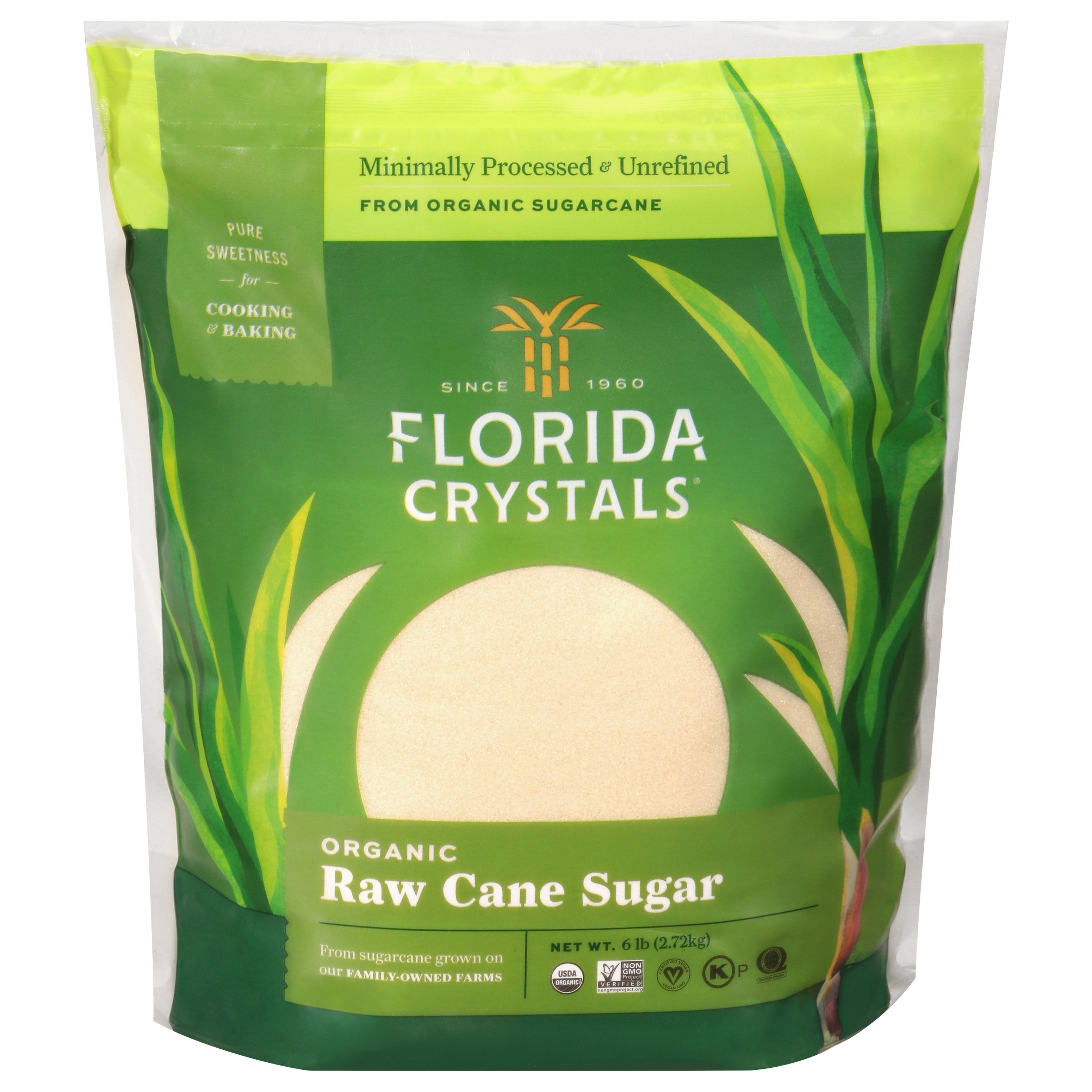The Scientific Research Behind Cane Sugar Processing: Exactly How Sweet Taste is Fine-tuned
The Scientific Research Behind Cane Sugar Processing: Exactly How Sweet Taste is Fine-tuned
Blog Article
A Comprehensive Summary of the Health and Economic Effects of Walking Cane Sugar Handling on Local Neighborhoods
Walking cane sugar handling plays a pivotal duty in forming the financial landscape of regional communities, offering employment possibilities and boosting supplementary industries. The health implications associated with high sugar usage can not be overlooked, as they add to climbing prices of weight problems and diabetes.
Financial Advantages of Walking Stick Sugar Processing
Walking cane sugar processing offers substantial financial benefits that expand beyond the immediate agricultural industry. The cultivation and handling of sugarcane develop many job opportunities, from farming to manufacturing and distribution. This work generation not only sustains local economies however also promotes area advancement by providing steady income sources for family members.
Additionally, the sugar market boosts supplementary companies, consisting of transportation, tools supply, and packaging solutions (Cane Sugar Processing). As these markets grow, they add to an extra robust economic framework, enhancing overall neighborhood strength. The export potential of processed walking cane sugar even more intensifies economic advantages, positioning regions as affordable gamers in global markets
Investment in contemporary processing centers can lead to raised performance and performance, thus minimizing waste and maximizing source use. This shift not only benefits the regional economic situation however also supports sustainability efforts by lessening ecological impacts.
Additionally, the profits produced from walking stick sugar processing can be reinvested in regional facilities, education, and health care, promoting holistic community development. On the whole, the financial benefits of cane sugar processing are complex, providing a foundation for sustaining success in farming regions.
Health Risks Related To Sugar Intake
Too much sugar usage poses significant wellness threats that necessitate significant interest. High intake of included sugars, especially from processed beverages and foods, has actually been connected to many wellness difficulties. One of the most important concerns is obesity, as sweet diets add to a boosted caloric consumption without offering vital nutrients. This extra can lead to metabolic disorders, including kind 2 diabetic issues, which has actually ended up being increasingly widespread in both children and adults - Cane Sugar Processing.
Furthermore, high sugar intake is connected with heart disease. Elevated blood glucose degrees can result in insulin resistance, a forerunner to numerous heart-related issues. In addition, sugar can have harmful impacts on dental health, leading to dental caries and gum tissue condition, as bacteria in the mouth flourish on sugar, creating acids that wear down tooth enamel.
In addition, arising research suggests a potential link between high sugar consumption and mental health conditions, such as clinical depression and anxiousness. As areas grapple with these health and wellness dangers, it ends up being important to advertise recognition and urge healthier nutritional selections. Attending to sugar intake is important not just for private health and wellness yet likewise for the general well-being of local communities, stressing the requirement for comprehensive public health and wellness methods.
Environmental Impacts of Sugar Production
Regularly ignored in discussions regarding sugar's effects is the considerable environmental impact of sugar manufacturing. The growing of sugarcane frequently demands extensive land usage, bring about logging, loss of biodiversity, and disruption of neighborhood ecological communities. The conversion of forests and wetlands right into sugar ranches can cause habitat destruction, threatening countless types and altering eco-friendly equilibrium.
Furthermore, sugar manufacturing is resource-intensive, consuming considerable quantities of water for watering. This can cause exhaustion of local water resources, negatively affecting both farming practices and area accessibility to tidy water. In addition, using chemical plant foods and pesticides in sugarcane farming can add to dirt degradation and water contamination, as drainage from these chemicals goes into neighboring rivers and lakes, affecting marine life and human health.
The environmental impact includes the processing stage, where power consumption and waste generation more intensify ecological problems. Air contamination from shedding review sugarcane areas, along with greenhouse gas emissions, add to environment adjustment. Thus, the ecological implications of sugar production warrant major consideration, advising stakeholders to embrace even more sustainable practices to reduce these unfavorable impacts on regional communities and neighborhoods.
Task Development and Area Growth
The ecological obstacles posed by sugar production are often reversed by its capacity for financial advantages, specifically in work production and community development. The cane sugar sector works as a substantial resource of employment in numerous backwoods, providing jobs throughout numerous ability levels, from agricultural labor to handling and distribution duties. This work not just supports individual family members yet also contributes to the overall financial vigor of local communities.
In addition, the facility of sugar handling facilities boosts supplementary businesses, such as transport services, tools supply, and maintenance suppliers. As these services thrive, they develop additional work and reinforce neighborhood economic situations. The profits generated from the sugar sector likewise leads to boosted tax obligation earnings, which can be reinvested click to find out more into social work such as health care, framework, and education advancement.
Additionally, the sugar market commonly takes part in area growth efforts, such as supporting regional institutions and health and wellness programs, thus enhancing the quality of life for residents. By fostering solid neighborhood ties and promoting financial development, the walking cane sugar processing sector plays a vital duty in uplifting regional populations, making it a vital component of lasting advancement techniques in sugar-producing areas.
Balancing Health and Economic Development
In navigating the intricacies of walking stick sugar processing, an essential difficulty lies in stabilizing health and wellness considerations with financial growth. The sugar sector significantly adds to neighborhood economic situations by generating tasks, stimulating relevant industries, and increasing tax obligation earnings. Nonetheless, the health effects related to too much sugar consumption can cause persistent diseases such as excessive weight, diabetic issues, and cardio issues, which can worry public health systems and reduce labor force efficiency.

Moreover, regulatory frameworks can play a critical function in directing market methods towards Get More Info more health-conscious and sustainable methods. By fostering collaboration in between federal government bodies, wellness companies, and the sugar market, neighborhoods can navigate the dichotomy of health and financial development, making certain that the advantages of walking stick sugar processing are equitably shared while prioritizing public health.
Conclusion
In conclusion, the handling of walking cane sugar provides both considerable economic benefits and noteworthy health threats for regional neighborhoods. While it fosters work development and stimulates local development, the associated wellness issues, particularly pertaining to weight problems and diabetic issues, necessitate a mindful balancing act. By advertising accountable intake and investing in neighborhood education and lasting practices, it is feasible to make the most of financial advantages while reducing negative wellness effects, therefore guaranteeing a healthier future for local populaces.
Furthermore, sugar can have destructive impacts on dental health, resulting in tooth cavities and gum tissue illness, as microorganisms in the mouth thrive on sugar, creating acids that deteriorate tooth enamel.
Dealing with sugar usage is essential not just for specific health yet also for the overall well-being of regional neighborhoods, stressing the need for extensive public wellness approaches.
Frequently neglected in discussions regarding sugar's ramifications is the substantial ecological influence of sugar production. The health implications connected with extreme sugar usage can lead to persistent illness such as excessive weight, diabetes mellitus, and cardiovascular problems, which can problem public wellness systems and lessen labor force performance.

Report this page